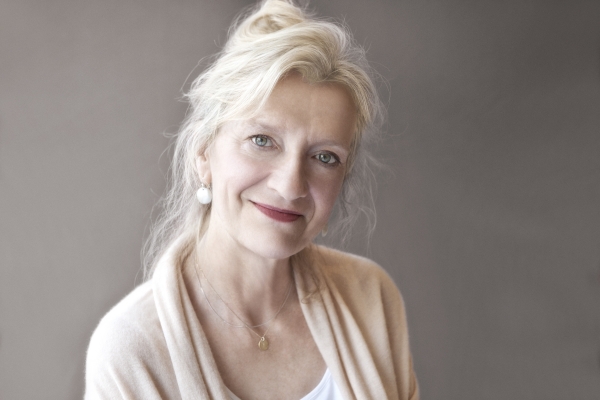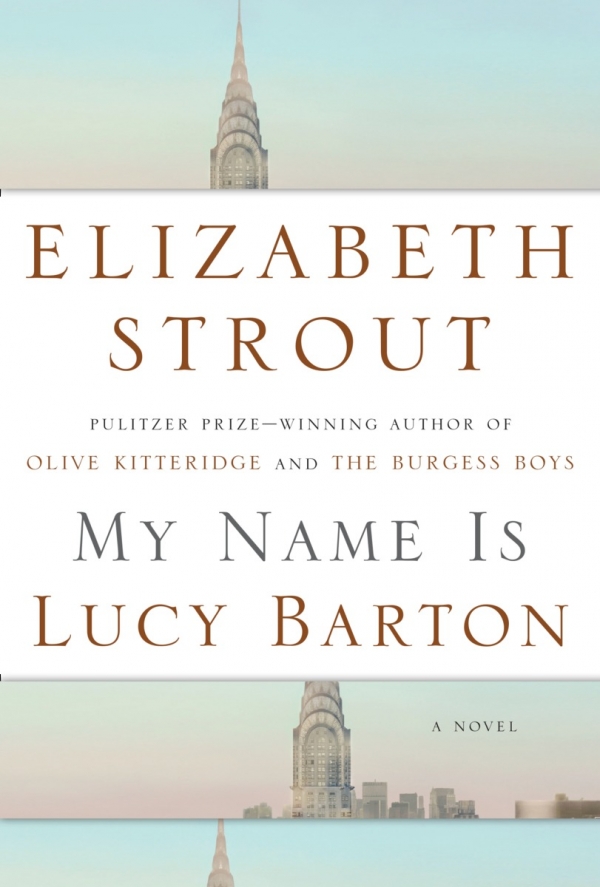Having won the Pulitzer Prize for her 2008 novel-in-stories "Olive Kitteridge," Elizabeth Strout has now delivered another book about motherhood and parenting, secrets kept and revelations deferred.
How well can we know our parents? How well can we know ourselves? These two questions are at the heart of "My Name Is Lucy Barton," the slim yet devastating new novel by Strout, best-selling author of "The Burgess Boys" and "Amy and Isabelle."
Strout will appear in conversation with Kelly Corrigan at Kepler's in Menlo Park on January 19.
Reached by phone in New York, Strout spoke about her youth, her new novel and the lessons she has learned about writing.
Although she'll be a first-time visitor to the Palo Alto area, Strout is no stranger to college towns. The child of educators, she grew up in coastal Maine and near the University of New Hampshire in Durham, where "everybody's parent, particularly their father back then, was somehow affiliated with the university."
"It really wasn't until I got to college that I fully understood that people actually had other jobs," she said.
Of her childhood, she noted that "there was a solitariness" to it and that her earliest memories are of the physical world.
"I would just play in the woods, and that was my first friend," she said.
After graduating from Bates College and before pursuing a writing career, Strout attended law school, but she did not spend much time as a practicing attorney.
"I was a terrible, terrible lawyer, although I really did find law school interesting," she said.
In "My Name Is Lucy Barton," the title character is a writer looking back at the time in the early Eighties when a routine appendectomy led to a mysterious infection and a weeks-long hospital stay in Manhattan.
For Lucy, the most memorable part of the ordeal is a five-day visit by her mother, whom she has not seen in years, and who sits by her bed and tells her all about various unhappy marriages back in their Illinois hometown. Through their conversations, the two women reveal harsh truths about poverty, abuse, family and ambition.
According to Strout, "My Name Is Lucy Barton" is a departure from her earlier novels in at least two significant ways.
"First of all, it's in first-person, and I'd never written a book in first-person before," she said. "I've always loved different points of view. I have omniscient narrators in my other books, and I enjoyed switching points of view."
Using the third-person narrator for "Lucy Barton" "just didn't work at all," she said.
"I realized as I kept working on (Lucy) that it was her voice that was drawing me back to her. So, I just went with (the first-person)."
Another gamble Strout took in "Lucy Barton" was to make its protagonist an author. The clues were waiting for her in an earlier rough draft.
"I saw that Lucy used to stay after school to be warm and that she read books and that the books 'brought her the world,'" Strout said. "That's when I knew that Lucy had to be a writer."
As Lucy learns how to write her own story as fiction, she receives advice from various friends and mentors. Her friend Jeremy, tells her, "You must be ruthless, Lucy." Novelist and teacher Sarah Payne says to Lucy, "If you find yourself protecting anyone as you write this piece ...remember this: You're not doing it right."
For her own part, when asked about some of the writing advice she has received over the years, Strout thought for a moment before recollecting an anecdote from when she studied with heavy-weight literary editor Gordon Lish in New York.
"He was pretty scary. He would really go after people, but he would leave me alone. But one day he said to me, 'You're good, Strout, but you lack stamina.' And my God, if that didn't carry me through 20 years of writing. 'I do not lack stamina! I do not lack stamina!'
That persistence has led to best-sellerdom, major awards and the attention of Hollywood. The success of the Emmy-winning television adaptation of "Olive Kitteridge," starring Frances McDormand, Richard Jenkins and Bill Murray, seems to have led to even greater interest in Strout's fiction, including her 2013 novel "The Burgess Boys."
"Just today, Robert Redford announced that he's optioned it for an HBO miniseries," she said. "I'm very happy about that."
Strout also seems pleased with the continuing interest in "Olive Kitteridge." Outspoken, stubborn, damaged and sensitive, Olive remains a figure of controversy among her readers.
"Oh, my goodness, the different responses have varied so much!" Strout said. "From people who have stood up in auditoriums and said, 'I hate Olive so much. I don't know how you could create such a horrible person' to cheerful, lovely woman who come up to me and say, 'I'm Olive!' "
Across the years, Strout's method of composition style has remained much the same: old-fashioned, low tech and somewhat scattered.
"I write on different little scraps of paper and push them around on the table," she
She said that she never writes a novel from beginning to end, but composes almost on the fly.
"The way I work, I just write different scenes every day, different things that feel urgent," she said. "I always write out my little snippets by hand, and when they get big enough, I'll put a scene or two on the computer, and print it out and start to mess it up again right away. I do work well with messiness."
Asked whether she is always able to find a necessary sheet of prose, Strout said, "It's never where I can put my hands on it, actually. That's a real problem. Sometimes I'll think, 'Oh dear, what happened to that?' It'll either show up, or it won't. And I've come to believe that, what needs to show up, will."
Strout said that she handwrote the last page of "Olive Kitteridge" years before the book was done.
"I wrote it out and stuck it away. And I wrote END on it, with a question mark. A few years later, when I was writing that final story, I thought, 'Wait a minute! I have the end of this story. Where is it?' She laughs. "And I found it! So there you go!'"
What: Elizabeth Strout in conversation with Kelly Corrigan
Where: Kepler's, 1010 El Camino Real, Menlo Park
When: Tuesday, January 19 at 7:30 p.m.
Cost: $40 (Premier ticket with book) , $20 (General admission without book), $10 (Student admission without book)
Info: Go to keplers.com or call (650) 324-4321




Comments